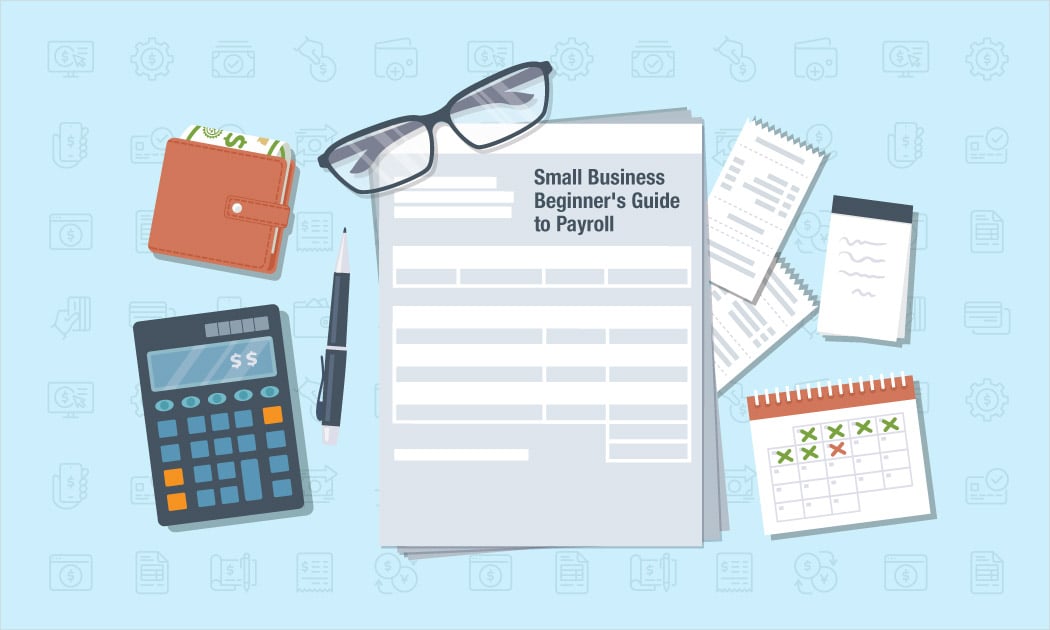The Payroll Blog
News, tips, and advice for small business owners
- Home
- Resources
- Payroll Blog
- How To Run Your Own Payroll
How To Run Your Own Payroll
As a small business owner, hiring your first employee means that it's time to implement a payroll process.

You’ll likely have many questions related to payroll and taxes including, can I do payroll myself?
Generally speaking, there are three ways to process payroll:
- Do it yourself
- Hire an accountant
- Use an online payroll service
Payroll taxes consist of local, state, and federal taxes withheld from an employee's paycheck. The IRS provides an overview of employment taxes on its website, making note of:
- Federal Income Tax
- Social Security and Medicare Taxes
- Additional Medicare Tax
- Federal Unemployment Tax
Once you fully understand which taxes to withhold, as well as the rate associated with each one, you're in a position to move forward. Below you'll see how to do payroll for small business, whether you choose to use online payroll software, an accountant or bookkeeper, or continue to DIY payroll.

Basic Payroll Steps
Here are the most basic steps associated with doing your own payroll (click here to download a checklist to help organize payroll details):
1. Sign up for an Employer Identification Number
In short, this is the number the IRS uses to identify your business. In some ways, it's the same as a Social Security number for an individual. The IRS makes it simple to apply for an EIN online.
Note: Depending on your state, you may also need to apply for a state tax identification number.
2. Request that each employee complete Form W-4
With this in hand, you can calculate how much federal income tax to withhold from your employee's paychecks. This documents the employee's allowances, as well as their filing status.
3. Settle on a payroll schedule
Will you pay employees once a week? Every other week? Once a month? Don't take this decision lightly, as it will impact how you do payroll and when your employees are paid.
Note: Payroll schedule is often dependent on state law and/or industry requirements so you will want to make sure that your schedule is aligned to appropriate regulations for your small business. This is also a good time to make note of important due dates and filing deadlines.
4. Calculate and withhold the proper amount of taxes
This is when the payroll process really begins. With each paycheck, it's your responsibility to calculate and withhold the correct amount of taxes.
5. Pay taxes
There are due dates for each type of tax, so make sure you mark these on your calendar. Missing a due date can result in penalties and/or interest, not to mention lost time.
Understanding Common Payroll Challenges
With this information, you should now have a clear idea of how to run payroll on your own. However, this doesn’t mean you’re in the clear. You could still face a variety of challenges, including the following:
- Staying current with local, state, and federal payroll tax changes
- Finding time in your schedule to manage and run payroll
- Implementing a data management and reporting system
- Preventing errors that cost you and/or your employees time and/or money
- Maintaining compliance
While these are among the most common challenges, a variety of others may bog you down at some point. The solutions you implement will dictate whether or not you have success running your own payroll.
Conclusion
As you can see, there is a lot that goes into doing your company's payroll. In addition to the five steps above, you may be responsible for completing a variety of other tasks.
With everything else you have on your plate running your small business, payroll might seem overwhelming. If it becomes too much to handle, it may be time to consider another option, like using an online payroll service.
We've put together a checklist to help you organize what information you'll need to run payroll, whether you manage the process in-house or use a payroll service provider.
Download your copy here: How Do I Run Payroll Checklist
Related Blog Posts
View Our Plans and Pricing
Small Business Is Our Business.
This website contains articles posted for informational and educational value. SurePayroll is not responsible for information contained within any of these materials. Any opinions expressed within materials are not necessarily the opinion of, or supported by, SurePayroll. The information in these materials should not be considered legal or accounting advice, and it should not substitute for legal, accounting, and other professional advice where the facts and circumstances warrant. If you require legal or accounting advice or need other professional assistance, you should always consult your licensed attorney, accountant or other tax professional to discuss your particular facts, circumstances and business needs.


